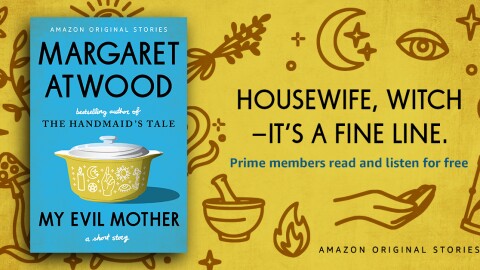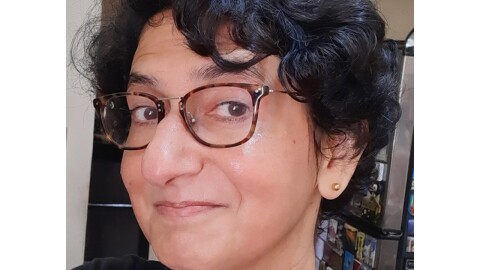The first time my client Trisha came to meet me, she was overwhelmed by self-loathing and despair. ‘I always feel less than everyone else. I hate myself. I do not see any point in living.’
Trisha was a tall, attractive 16-year-old, who sat crumpled up in the corner of the sofa, sobbing with utmost misery. In the last one year, gradually but alarmingly, she had started losing interest in most things and cutting herself off from people, until the time her life became limited to her bedroom.
I have worked as a therapist for over thirty years, in India and the UK, and have witnessed and continue to witness so many lives wrecked by mental health problems. I was quite disillusioned and disappointed in the field of clinical psychology when I started my training almost three decades ago. Though I met some amazing teachers, who I still continue to respect immensely, the training process itself left me cold. The primary focus of our work was to look for pathology, deficits, disorders, deviances in our ‘patients’. Many practices carried out at that time were inhumane, meaningless and painfully humiliating for both the ‘patients’ and for us as trainees.
Even now, after so many years, mental health problems are shrouded in so much of stigma. This has an erosive impact on the identity of people. They are left with a carcass of a single story of worthlessness, shame and hopelessness. Research indicates that one in four people can have a mental health problem in their lifetime. Suicide is the second leading cause of death in the youth of India. Forty per cent of female suicides occur here. And we still do not think the issue is serious enough and want to shrug it off as ‘character weakness’, where all people have to do is ‘become stronger’ and ‘snap out of it’. I am suggesting that we need to make a paradigm shift and not see Depression as an illness but a universal human condition that requires huge compassion and consideration from all of us.
Depression is not a failing. It is symbolic of the universality of human suffering.
Practising narrative therapy
We are all imperfect, fragile and flawed. But that is the beauty of it. We all carry stories of pain, struggle, shame; however, within us there are also stories of courage, grit and audacity. And that is why as a therapist, I practise Narrative Therapy as it aligns with my world view. It is respectful, competency-based and honours the dignity of the human experience. This approach is not about ‘us and them’, where we the therapists are the experts and the clients are damaged human beings, who we need to fix. We believe the clients are the experts in their lives and have the skills, resources and abilities to find their own unique North Star. It is more than just therapy as it addresses issues of oppression and social justice. Moreover, it is very much culturally grounded and believes that our lives are rooted in our understanding of our ancestry and heritage. This is crucial for therapists who are trained in Western thought but are very sensitive and mindful of their own cultural philosophies, customs and traditions.
One of the most powerful elements of Narrative Therapy is ‘externalisation’, where the mantra is: ‘The problem is the problem, the person is not the problem’. Narrative Therapy in grounded in the assumption that our struggles need telling and retelling so that they are heard. They need an audience as a story is not a story until it has found an audience. We need to separate the shame from our emotional struggles.
Depression has a loud voice and it has a tendency to drown out the voice of the person till the time the person starts internalising the voice of Depression and thinking, ‘This is me’.
For Trisha, recognising her dementor began with my subtle shift of language. We started by understanding the workings of Depression—the nuts and bolts of it—since when it had been around, how it spoke, its typical dialogue, the tone, how it made her feel about herself, what time of the day it was the strongest, what made it louder, what reduced the volume. Trisha and I found a common interest in history, so I used this as a way to ‘unpack’ and separate Depression. We discussed how oppressors throughout history had used the same mechanisms as Depression to colonise and subjugate people, where the oppressed completely started identifying with the oppressor or internalising the oppression. As the Russian writer, Fyodor Dostoyevsky, put it, ‘The best way to keep a prisoner from escaping is to make sure he never knows he’s in prison.’ It was fascinating to see that when it came to discussing history, Trisha became really alive and participative. The use of oppression as a metaphor resonated with her deeply. She could draw parallels and see how important it was to understand the Internalized Oppression and stand up to Depression as an oppressor.
In her journey of navigating her Depression and Internalized Oppression, Trisha learned to pan for gold within herself and find own her light. Trisha often reminds me of the wonderful quote by Elisabeth Kübler-Ross said, ‘People are like stained-glass windows. They sparkle and shine when the sun is out, but when the darkness sets in, their true beauty is revealed only if there is a light from within.’ During ancient times, travellers used the North Star as their compass to guide them in their journeys. The North Star was this solid, constant guide that helped them navigate their way in uncharted territory. It was believed that it was the brightest star in the constellation and it was the only star that stayed still in the star field. It was the steadfast, unwavering force that helped lost travellers find their way through its gentle glow.
What a powerful metaphor for our journey of life! When we get lost and lose track and hope, it is crucial for us to look for our North Star—that one thing that gives our life direction, value and meaning. North Star is not a destination but a direction. My recently published book, Reclaim Your Life , can be a toolkit to excavate deeper and reclaim your stories of worthiness, uniqueness and belonging. It will make you reflect on what gives your life meaning, joy and significance. It will help you explore your preferred identities, your dreams, aspirations and hopes. More than anything, it will help you in your journey to find your North Star.












